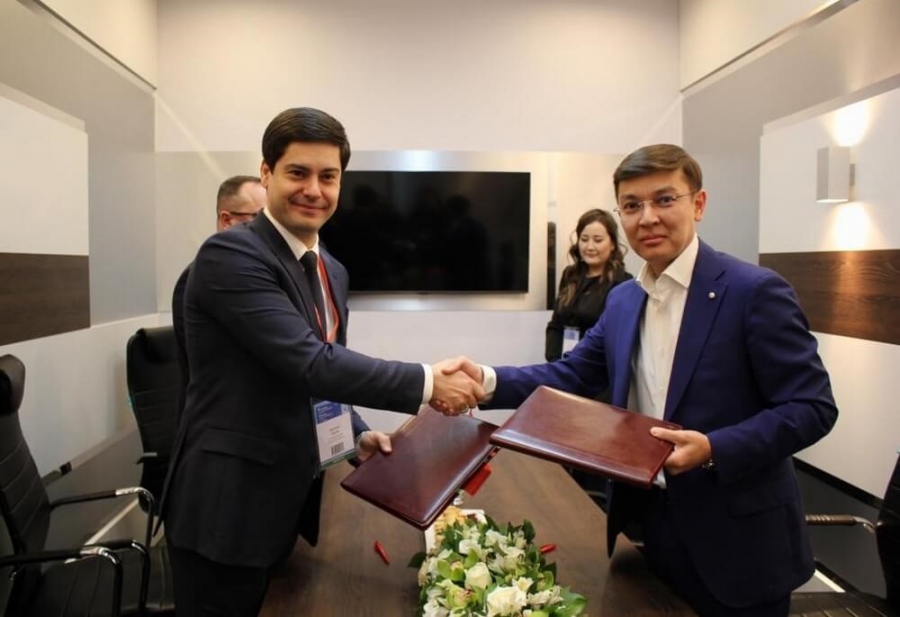The railway companies of Russia, Kazakhstan, and Turkmenistan have signed a memorandum to establish a joint venture that will concentrate on transportation development.
On Friday, Kazakhstan's KTZ Express released a statement announcing that KTZ Express JSC, JSC RZD Logistics, and Transport and Logistics Center of Turkmenistan JSC had signed the document during the 27th International Exhibition of Transport and Logistics.
“The parties agreed to combine their competencies to form competitive tariff rates and “seamless” transportation of goods from Kazakhstan, Russia, Turkmenistan to Iran, India, the countries of the Middle East and the Asia-Pacific region with the participation of Aksaraiskaya, Ozinki, Bolashak, Inche-Burun, Serakhs border crossings and in the opposite direction,” the press release reads.
According to the press service, the joint venture will operate rail freight services on the eastern branch of the International North-South Transport Corridor (INSTC).
The INSTC is a multimodal network spanning 7,200 kilometers of ship, rail, and road routes. It is designed to provide the shortest multi-modal transportation route linking the Indian Ocean and the Persian Gulf to the Caspian and Baltic Seas.
Compared to the sea route via the Suez Canal, the INSTC reduces the distance by more than half, resulting in lower transportation costs and shorter transit times. In addition, the INSTC provides an alternative connectivity initiative to countries in the Eurasian region and reduces the time and cost for the transfer of goods from India to Russia and Europe via Iran.
The INSTC currently unites multiple transport systems across various countries, with Russia and Iran being the two countries contributing the most to the infrastructure development projects, accounting for 34.6 percent and 33.7 percent of total planned investments, respectively. Kazakhstan has a 16.5 percent share of investment in the INSTC's development.
Recent statistics indicate that over 0.6 million tons of cargo were transported from the stations of the northern railways along the North-South International Transport Corridor (ITC) in 2022. The volume of shipments in this direction increased by 36.3 percent compared to the previous year, with 448,000 tons of cargo shipped along the western branch of the ITC through Azerbaijan, and 130,000 tons of cargo shipped along the eastern branch through Kazakhstan and Turkmenistan. During the same period, the ports of the Caspian Sea shipped 26.6 thousand tons of cargo, marking an increase of more than 14 times.
It is projected that by 2030, the volume of Russian cargo transported through the North-South ITC will double from 17 million tones to 32 million tones. This growth is being driven by significant geopolitical changes that are disrupting global supply chains and transport networks. As a result of these developments, the role of the International North-South Transport Corridor is becoming increasingly important.






















